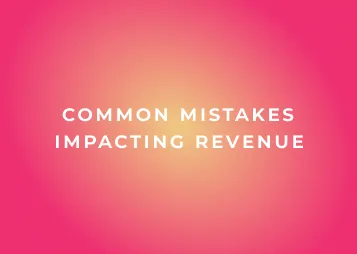– and why you should get used to it!
Have you ever heard your own voice on a call recording and cringed at how strange and unnatural it sounds?
Trust me, you're not alone.
Many people don’t like the way their recorded voice sounds, even if others perceive it as perfectly normal. The science behind this phenomenon is pretty fascinating and sheds a lot of light on why getting used to the sound of your voice can have huge benefits, particularly if you work in sales.
Improving your sales skills by listening back to call recordings is no secret and is the crucial first step in sales coaching.
The science behind the "strange voice" effect
In this brilliant TED Talk, Dr. Rébecca Kleinberger, a speech scientist, explains the paradox of why we often dislike the sound of our own recorded voices. It comes down to a quirk of human anatomy and the way sound travels.
When you speak, your voice travels not only through the air to reach your ears but also internally through the bones and tissues in your head. This internal transmission of sound gives you a unique perception of your own voice, which includes lower-frequency vibrations that others don't hear.
The end result is that your recorded voice lacks these lower frequencies, making it sound unfamiliar and even unpleasant to your ears.
These lower frequencies can even make people not recognize the sound of their recorded voice when played back to them. The human brain can do some pretty incredible things…
Luckily, our brains are also remarkably adaptable. With enough exposure to the sound of our recorded voices, we can overcome this initial discomfort and eventually perceive our voices as others do.
As with most things, practice makes perfect.
Improving sales skills through call recordings
Understanding the science behind this phenomenon has implications for anyone who relies on their voice for success, including sales professionals. By regularly listening to recordings of your sales calls, you can train your brain to become accustomed to the sound of your recorded voice.
It might take some getting used to, but trust me - it’s worth it. This practice not only helps you overcome the "strange voice" effect but also provides invaluable insights into your sales technique.
Call recordings offer a totally unbiased perspective on your conversations, allowing you to identify areas for improvement, such as:
- Voice quality: Are you speaking with confidence, clarity, and energy?
- Language and tone: Are you using persuasive language and maintaining a positive, engaging tone?
- Active listening: Are you truly understanding the customer's needs and responding accordingly?
- Objection handling: Are you effectively addressing and overcoming customer objections?
By regularly reviewing your call recordings with an analytical mindset, you can refine your sales skills and develop a deeper understanding of your communication style – all while getting used to the sound of your recorded voice.
Whether you start by reviewing calls alone, with a team mate or with your manager, you’ll get something out of every call you listen back to.
Embrace the opportunity to improve
So, the next time you hear your voice on a call recording and feel a twinge (or cringe) of discomfort, remember that this is a natural reaction based on how our bodies perceive sound.
You’re not going to let a little bone and tissue conduction get in your way, are you?
With regular exposure and an open mind, you can overcome this initial aversion and use call recordings as a powerful tool for self-improvement.
Those sale targets won’t smash themselves.
And you could just be one call recording away from bagging your next sale.
Shelley Lavery is the CRO and Co-Founder of Jiminny, the leading conversation intelligence and sales coaching platform that helps companies maximize their revenue. With over a decade of experience in coaching B2B sales teams, Shelley was previously Group SVP of Sales at Reward Gateway now leading the conversation intelligence discussion with expertise and insight.
{{ include_custom_fonts({"Montserrat":["Black","Bold","Extra Bold","Extra Light","Light","Medium","Regular","Semi Bold","Thin"]}) }}





.webp)






